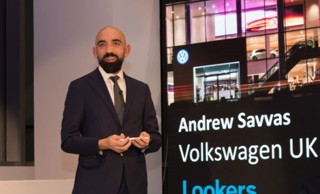Car dealers must start to take the business of explaining electric vehicles (EVs), hybrids and fuel cell vehicles seriously to drive future car sales, members of the Vehicle Remarketing Association (VRA) have been told.
Speaking at the organisation’s July members meeting, Sam Watkins, chairman at the VRA, said that the issue of explaining the various alternative fuel vehicle (AFV) options available to their customers was one that car retailers would soon need to take seriously.
“In a very short time, car buyers are going to be walking into showrooms faced with multiple power options for what is ostensibly the same vehicle,” she said.
“All of these choices will be the right one for some customers, but the industry needs to start delivering useful guidance on the differences and the advantages.
“This could be especially true for the remarketing sector. Vehicles that have no clearly defined buyer base tend to suffer in terms of values and time to sell.”
In May the National franchised dealers association (NFDA) launched its Electric Vehicle Approved (EVA) scheme at the House of Commons.
EVA has been developed by NFDA and endorsed by the Government’s Office for Low Emission Vehicles (OLEV) and the Energy Saving Trust (EST) and aims to certify retailers’ excellence in the electric vehicle sector.
Then Mobility Minister, Jesse Norman, said: “Record levels of ultra-low emission vehicles on our roads are good news, as we seek to end the sale of new conventional diesel and petrol cars and vans by 2040.
“The accreditation recognises businesses with knowledge, capability and commitment to electric vehicles, and will help to encourage more car owners to switch to a greener alternative.”
Speaking at the recent VRA meeting David Bailey, professor of business economics at the Birmingham Business School, University of Birmingham, and Rupert Pontin, insight director at Cazana, both highlighted how the process of explaining various new vehicle drivetrains to customers would be crucial to future new car sales.
Bailey said: “The success or failure of the electric vehicle market in all of its many forms depends on consumers being comfortable with the technology.
“We are moving from a phase where the market is dominated by early adopters who are happy to do lots of research about the choices facing them to one where EVs will become part of the mass market. For that to happen, we need to provide information.”
Bailey said that the provision of reliable, unbiased information about the range of new alternative fuel vehicle (AFV) options available to customers could help consumers develop a new level of trust for the retail sector. He said: “If we are able to successfully steer car buyers through making a choice in a manner that promotes trust, it could be used to help build an improved reputation for the sector.”
Pontin admitted that the explosion of different vehicle drivetrains made available in recent years had led to a situation where even people who work in the sector sometimes “have trouble distinguishing between PHEVs, BEVs, petrol MHEVs, diesel MHEVs”. How do we expect customers to be able to make the right choice for their needs?
“The fact is that we need to do more to help them, especially as more and more of these vehicles start to filter through onto the used market,” he added.
“The fact is that any vehicle that consumers do not understand is likely to be worth less. The advantages of each type need to be made clear using terminology that the car buyer appreciates and understands.”

















Login to comment
Comments
No comments have been made yet.